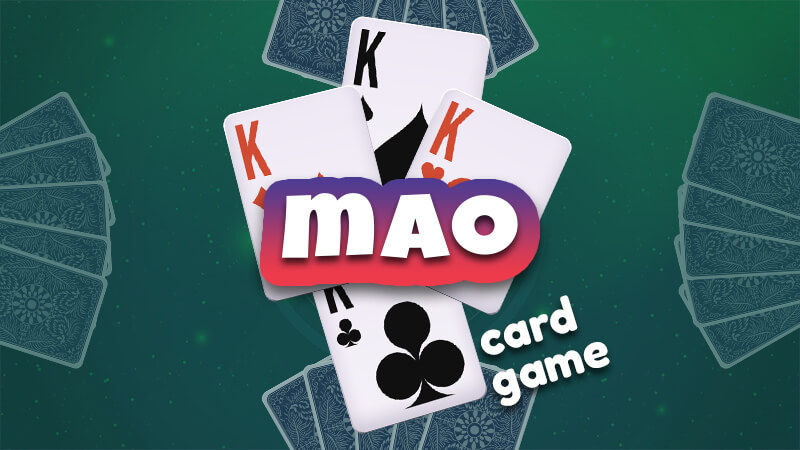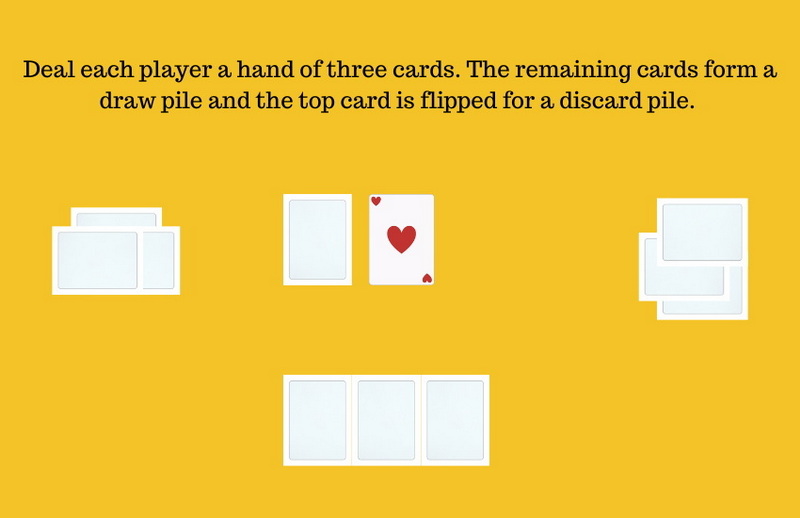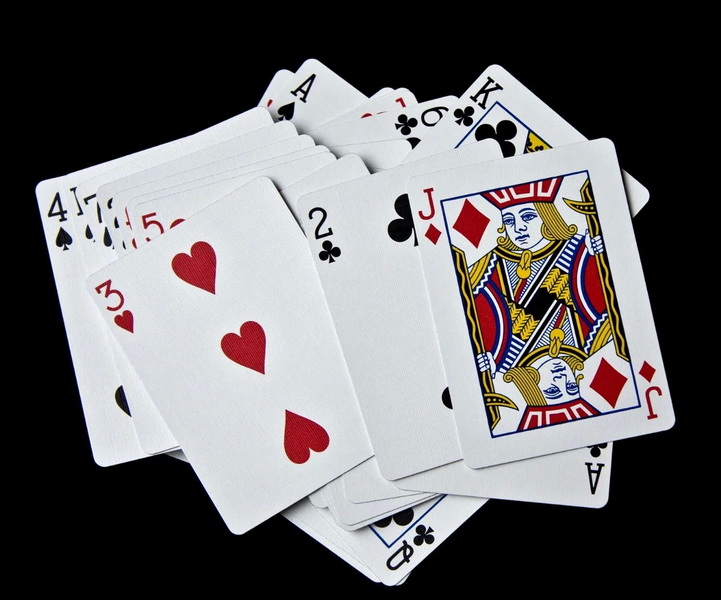Content Menu
● Introduction to Mao
● Objective of the Game
● Setting Up the Game
>> Materials Needed
>> Dealing Cards
● Basic Rules of Play
>> Playing Cards
>> Special Card Rules
>> Communication Restrictions
>> Penalties
● Winning the Game
● Strategies for Success
● Variations of Mao
● Social Aspects of Mao
● Conclusion
● Frequently Asked Questions
>> 1. What is the main objective of Mao?
>> 2. Can I ask questions about the rules during gameplay?
>> 3. What happens if I forget to say "Mao" when I play my last card?
>> 4. How do I create new rules for future games?
>> 5. Are there different versions of Mao?
● Citations:
Introduction to Mao
Mao is a unique and entertaining card game that combines elements of strategy, memory, and a bit of mystery. The game's charm lies in its unspoken rules, which players must discover through gameplay rather than being explicitly told. This article will guide you through the rules and strategies of playing Mao, ensuring you have a comprehensive understanding of how to enjoy this intriguing game.

Objective of the Game
The primary objective of Mao is simple: be the first player to get rid of all the cards in your hand. However, achieving this goal requires navigating a series of complex and often humorous rules that can change from one game to another. Players must adhere to these rules while trying to outsmart their opponents.
Setting Up the Game
Materials Needed
To play Mao, you will need:
- A standard deck of playing cards (remove jokers).
- A group of friends (the more, the merrier).
- A table or flat surface for gameplay.
Dealing Cards
1. Choose a Dealer: Select one player to be the dealer. This player is responsible for shuffling and dealing the cards.
2. Deal Cards: Each player receives a set number of cards (typically 5-7, depending on the number of players). The remaining cards form the draw pile.
3. Start the Game: The dealer flips over the top card from the draw pile to start the discard pile and announces, "The game of Mao has begun."
Basic Rules of Play
Playing Cards
Players take turns playing cards from their hand onto the discard pile. The following rules govern how cards can be played:
- Matching Cards: Players must play a card that matches either the suit or rank of the top card on the discard pile.
- Drawing Cards: If a player cannot play a card, they must draw one from the draw pile. If they can play this card, they may do so immediately; otherwise, their turn ends.
Special Card Rules
Mao includes several special rules that apply when certain cards are played:
- Aces: Skip the next player's turn.
- Eights: Reverse the order of play.
- Sevens: When a seven is played, the player must say "Have a nice day." If another seven is played afterward, the next player must say "Have a very nice day," adding an additional "very" for each consecutive seven played.
- Jacks: Wild cards that allow the player to change the suit.
- Spades: When playing a spade, players must announce the card's name (e.g., "Eight of Spades").
Communication Restrictions
One of Mao's defining features is its communication restrictions:
- Players may not discuss rules during gameplay.
- Players may not ask questions about rules; doing so results in penalties.
- Players can only speak when required by specific card actions or when issuing penalties.
Penalties
When players break any of these rules, they face penalties:
- The offending player must draw an additional card from the deck as punishment.
- Players who receive penalty cards must say "Thank you" or face further penalties.

Winning the Game
To win a round of Mao:
1. A player must play their last card and declare "Mao" after fulfilling all required statements related to that card.
2. If they fail to say "Mao" or break any rules while doing so, they incur penalties.
The winner gets to create a new rule for future rounds, which adds an element of surprise and strategy as players try to figure out what that rule is.
Strategies for Success
While Mao involves luck, strategic thinking can significantly enhance your chances of winning:
1. Observe Opponents: Pay attention to how your opponents play their cards and what rules they seem to follow or break. This observation can give you clues about their hand and help you decide your next move.
2. Remember Rules: Keep track of all special rules in play; this will help you avoid penalties and exploit opportunities. Familiarizing yourself with common house rules before starting can also give you an edge.
3. Manage Your Hand: Try to maintain a balance between high-value and low-value cards, allowing flexibility in your plays. Holding onto lower-ranked cards can be beneficial as they are easier to play when you're nearing the end.
4. Adaptability: Since Mao's rules can change frequently based on new ones introduced by winners, be prepared to adapt your strategy accordingly. Flexibility is key in navigating unexpected twists in gameplay.
5. Psychological Play: Use bluffing and misdirection as strategies; sometimes pretending you have fewer playable cards than you do can lead opponents into making mistakes.
Variations of Mao
Mao has many variants with different house rules that can add complexity or simplicity:
1. Joker Variants: Some versions allow jokers as wild cards that can represent any card in play. This adds an extra layer of strategy since players can use them at critical moments.
2. Additional Actions: In some groups, specific cards may trigger unique actions beyond those typically associated with them (e.g., playing a queen might require everyone to stand up).
3. Multiple Decks: In larger groups, using multiple decks can make for an interesting twist where players have to manage more cards and potential combinations.
4. Scoring Systems: Some players prefer keeping score over multiple rounds instead of just playing until someone wins one round. This adds competitiveness as players accumulate points based on their performance over several games.
5. Theme Variants: Some groups create themed versions of Mao where specific themes dictate unique rules (like holiday-themed Mao with festive actions).
Social Aspects of Mao
Mao is not just about winning; it's also about social interaction and fun:
1. Group Dynamics: The game fosters camaraderie as players navigate its complexities together. The shared experience often leads to inside jokes and memorable moments that enhance friendships.
2. Humor and Creativity: The absurdity often found in discovering new rules or dealing with unexpected penalties creates plenty of laughter among players.
3. Inclusivity: Mao is suitable for various age groups and skill levels, making it an excellent choice for family gatherings or parties where everyone can participate regardless of experience.
4. Icebreaker Potential: For new groups or gatherings where not everyone knows each other well, Mao serves as an excellent icebreaker activity that encourages interaction without requiring extensive prior knowledge.
5. Cultural Variations: Depending on where you play it, different cultures may have unique takes on Mao, incorporating local customs or themes into gameplay for added enjoyment.
Conclusion
Mao is not just a game; it's an experience filled with laughter and surprises as players navigate its quirky rules. Whether you're playing with friends or family, understanding how to play Mao can lead to hours of fun and memorable moments.
The beauty of Mao lies in its adaptability and social nature—each game session becomes unique based on who plays it and what new rules are introduced along the way. As you dive into this captivating world, remember that while winning is enjoyable, it's often the journey—filled with unexpected twists—that makes Mao truly special.

Frequently Asked Questions
1. What is the main objective of Mao?
The main objective is to be the first player to get rid of all your cards while adhering to various unspoken rules.
2. Can I ask questions about the rules during gameplay?
No, asking questions about the rules is prohibited during gameplay and will result in penalties.
3. What happens if I forget to say "Mao" when I play my last card?
If you forget to say "Mao," you will incur penalties, which may include drawing additional cards.
4. How do I create new rules for future games?
The winner of each round gets to create a new rule that other players must figure out in subsequent games.
5. Are there different versions of Mao?
Yes, there are many variants with different house rules that can alter gameplay dynamics significantly.
Citations:
[1] https://www.reddit.com/r/cardgames/comments/vlga1k/how_to_play_mao/
[2] https://www.reddit.com/r/boardgames/comments/fti9bp/best_rules_for_the_game_of_mao/
[3] https://blog.csdn.net/wizardforcel/article/details/142892180
[4] https://www.georges.nu/blog/the-game-of-mao/
[5] https://www.cnblogs.com/apachecn/p/18462329
[6] https://www.instructables.com/How-to-play-the-game-Mao/
[7] https://www.cnblogs.com/apachecn/p/18462320
[8] https://vipspades.com/blog/how-to-play-mao-card-game/
[9] https://github.com/MFarejowicz/mao-rules
[10] https://en.wikipedia.org/wiki/Mao_(card_game)
[11] https://www.instructables.com/Mao-Card-Game/
































